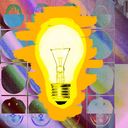A year of discovery

A key ingredient for life spotted on one of Saturn's moons. An early chapter in human history revised. A slew of possible new materials predicted by AI. 2023's scientific discoveries — of the big and small, near and far — expanded the edges of knowledge.
Why it matters: The world is in urgent need of new ideas and inspiration to address chronic and infectious diseases, climate change, energy demands and other complex and consequential problems.
Here are some of the biggest discoveries and advances of 2023 ...
AI-assisted discovery: The push to use AI for science notched some advances in 2023 — including solving a famous math problem, finding a new class of antibiotics and predicting the structure of nearly 400,000 possible new materials, which are needed for next-generation batteries, solar cells and computing.
Gene-editing cure: The Food and Drug administration approved the first therapy that uses CRISPR gene editing, a treatment for sickle cell disease. The approach could be used for other diseases but is right now expensive, raising concerns about access to therapies.
Synthetic biology milestone: Scientists completed synthetic versions of the chromosomes in a yeast cell — a feat that advances the field of synthetic biology toward a goal of creating cellular factories that can be programmed to produce biofuels, medicine and materials.
Human history revised: A genetic analysis provided more evidence that modern humans emerged from at least two populations that migrated across the continent and mixed with one another.
- The finding put "a nail in the coffin" of the idea that modern humans had a single birthplace, one researcher told the NYT.
Brain maps drawn: A census of the cell types in the human brain, a map of the maggot brain and a complete atlas of the cells in the mouse brain — multi-year efforts involving hundreds of researchers at dozens of institutions — were released this year.
- They could help provide much-needed insights into learning, behavior and diseases and disorders that affect the brain.
Astronomy challenged: The James Webb Space Telescope spotted unusual possible early galaxies and pairs of worlds — perhaps planets or maybe stars — orbiting each other.
- If confirmed, they could require a reexamination of the formation of stars and the evolution of the universe.
New species spotted: Spiders, sea slugs, octopus, plants, insects, microbes and hundreds of other species discovered this year are a reminder of Earth's vast biodiversity and could inform efforts to conserve it.
X-ray era: The world's most powerful X-ray laser produced its first pulses in 2023 — giving scientists a new tool for studying the details of the interaction of atoms and behavior of electrons.
Yes, but: These advances come as evidence continues to suggest the pace of disruptive research is slowing down. Scientists are turning the mirror on science itself to zero in on what's contributing to the trend.
- Here, too, AI could play a role: A paper this year suggested AI could help to not only speed up scientific discovery but push it in entirely new directions.
The big picture: The impact of science isn't limited to shaping the course of humanity or swaying the planet's fate — it also can reveal our deep shared history and common cosmic place in the moment.